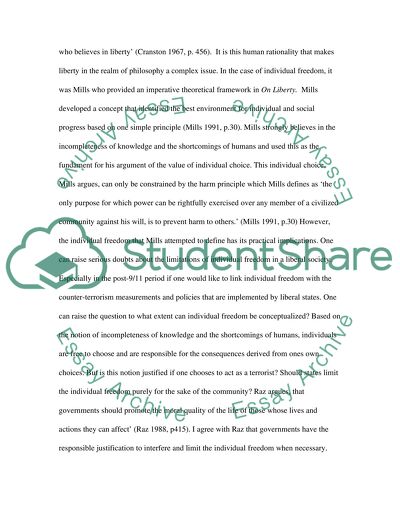Cite this document
(“Liberalism and Positive Liberty Essay Example | Topics and Well Written Essays - 1500 words”, n.d.)
Retrieved from https://studentshare.org/sociology/1509664-positive-liberty
Retrieved from https://studentshare.org/sociology/1509664-positive-liberty
(Liberalism and Positive Liberty Essay Example | Topics and Well Written Essays - 1500 Words)
https://studentshare.org/sociology/1509664-positive-liberty.
https://studentshare.org/sociology/1509664-positive-liberty.
“Liberalism and Positive Liberty Essay Example | Topics and Well Written Essays - 1500 Words”, n.d. https://studentshare.org/sociology/1509664-positive-liberty.


